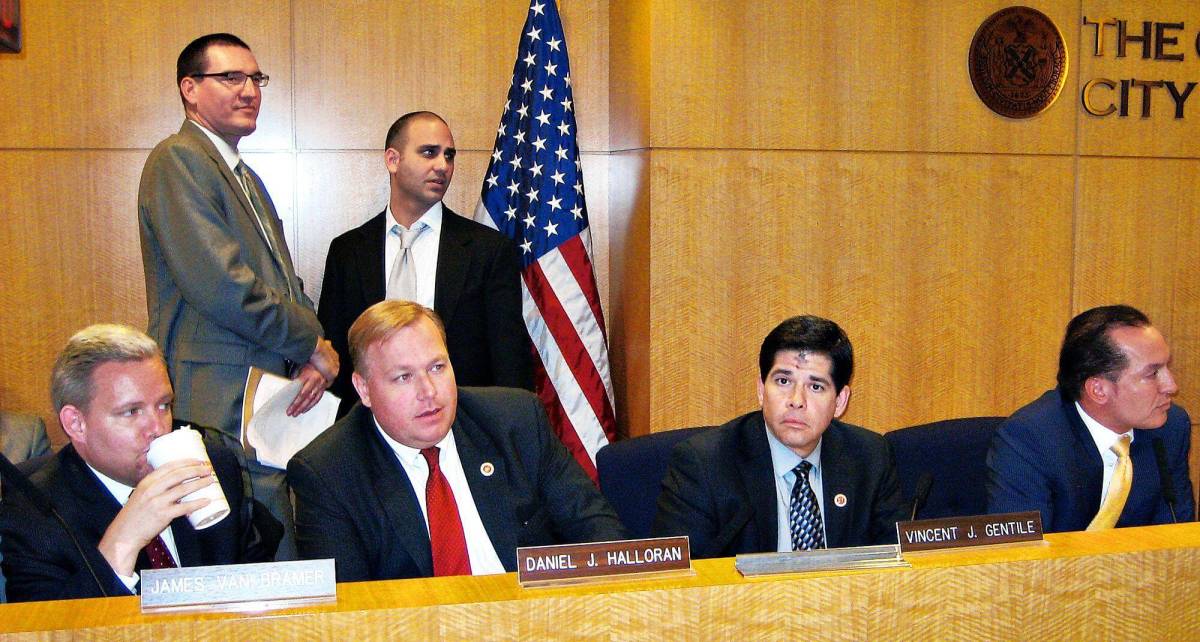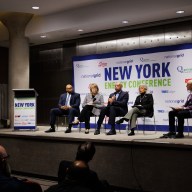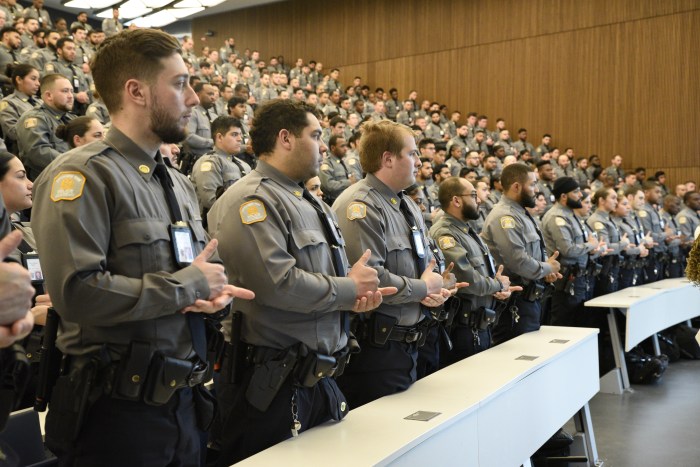By Connor Adams Sheets
Mayor Michael Bloomberg’s administration does not support any of the City Council’s suggestions for legislation proposed in response to the city’s mishandling of the Dec. 26 blizzard, which Bloomberg himself described as “inadequate” and “unsatisfactory.”
Liz Weinstein, director of the mayor’s office of operations, said last week Bloomberg does not endorse any of the 16 bills Council members have proposed to address the shortcomings exposed by the aftermath of the storm, which embarrassed Bloomberg and his emergency response team. Flaws in the city’s storm response left parts of Queens unplowed for as long as five days.
Council Public Safety Committee Chairman Peter Vallone (D-Astoria) told Weinstein at a March 9 hearing the administration should take the Council’s bills more seriously since they are aimed at correcting holes in the process that need to be patched before the next storm cycle.
“You said you don’t want us to legislate the details. We’re working with you to come up with objective standards,” he said. “Everyone in this room just wants to continue to work with you to fix these things not only for now but for the future.”
Weinstein presented a 15-part plan for changing city operations that was first discussed at a January Council hearing, then proceeded to individually rebut each of the bills before the Council.
The legislation’s goals ranged from the creation of a new emergency management plan to new rules for clearing snow from bus stops to an overhaul of the city’s 911 service.
Weinstein balked at each bill during the joint hearing of the Council Public Safety, Transportation and Sanitation committees, saying the city Office of Emergency Management — and other agencies involved in emergency response — wants “to protect a degree of discretion and flexibility,” but added that the administration would like to continue discussions with members of the Council about the issue.
“There are pieces of many of the bills that I think are good, and that I’d be willing to work on with you or to combine in a plan,” Weinstein said.
Before shooting down all 16 bills, Weinstein rehashed the 15 recommendations the Bloomberg administration introduced in January aimed at addressing the problems that allowed for a debacle such as the botched snow response to take place.
Weinstein, who was joined by a number of other city representatives — including Skip Funk, the director of the Office of Citywide Emergency Communication, and Anthony Crowell, senior counsel for Bloomberg — detailed a litany of planned changes, such as technological upgrades, improving communications and boosting the city’s ability to quickly deploy resources.
Some of the changes have already been implemented in part or in full, including the installation of GPS units in hundreds of city Sanitation Department vehicles, the creation of a “real-time portal” on nyc.gov that will go into effect 12 hours before storms to inform the public and more.
But the 15-point plan is not going to be enough to satisfy the Council, according to Councilman G. Oliver Koppell (D-Bronx).
“It does strike me that the testimony today was, ‘We messed up, but trust us to do better in the future’ …. We don’t necessarily trust them to necessarily exercise their discretion efficiently, and that’s why we’ve proposed legislation,” Koppel said. “There should be rules — all these bills do is require that you implement those rules.”
The Federal Emergency Management Agency announced last week that Queens will receive Category B funding “for emergency protective measures,” associated with some storm recovery costs.
Reach reporter Connor Adams Sheets by e-mail at csheets@cnglocal.com or by phone at 718-260-4538.




























